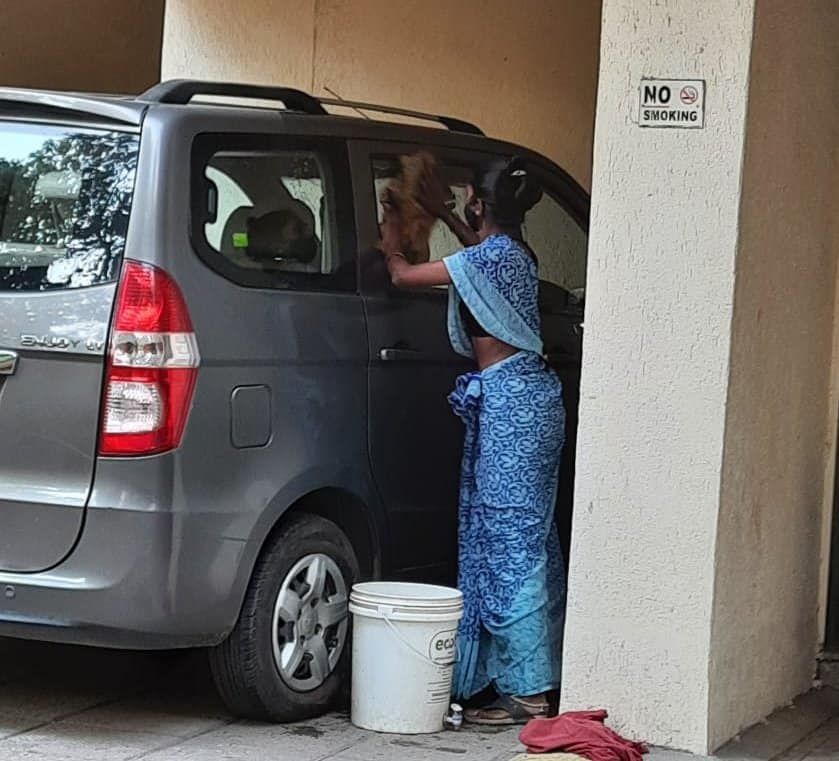If there is one woman who truly inspires me every single day, it is Vidya. Originally from a village in Uttar Pradesh, marriage brought Vidya to Mumbai 15 years ago. Her husband was already working in the city.
As Vidya learnt, the big city offers opportunities that may be lacking in villages and small towns, but life can be quite hard.
About six years ago, Vidya’s husband deserted her, leaving her to fend for herself and their three children who were at that time aged 9, 4 and an infant. The middle one, a daughter, is a special child, with mental and extreme physical disabilities. Vidya had no choice but to take up housework, to be able to feed the family.
Starting the day early in the morning, Vidya was working in 5-6 different homes. She would rush home in between jobs to attend to her daughter, who is now 10. The child is bedridden and needs to be fed and bathed. Her clothes often need to be changed as they frequently get soiled. A couple of years ago, the child contracted tuberculosis, and Vidya was forced to leave her sons at home and stay in the Sewri TB Hospital for 45 days, till they were told that they could return. A friend and I provided all the assistance she needed and helped with her boys too.
Read more: What does it mean to be a woman auto driver in Chennai?
To add to her woes, Vidya’s elder son who is about 15 now, ran away. As soon as she realised, she did the rounds of the police station and every street in a 3km radius, looking for the boy. We made posters and put them up in every house and shop in the area where she lived. For a couple of weeks, she would be out from mid-night to about 2 a.m., checking out the typical spots where she thought her son may come. Finally after about 3 weeks the boy came back home. He never spoke a word about where he’d been. He was clearly unhappy and determined not to speak to his mother. So she left him at Malad with one of her village folk. It’s been 6 months since she’s seen him, but there’s some relief, given that the person promised to teach the boy some skill and also feed him.
Lockdown effect
Lockdown time meant no work and therefore no money. Post the easing of the lockdown, she tried to get back her old jobs. However, people had either left Mumbai or did not want to have a domestic help inside the house.
She had just one job that didn’t pay enough, even for the rent of the micro-room where she lived.
We figured that if people didn’t want her to work inside their homes, she could work outside them. I suggested that she start with me by cleaning our car.

She was reluctant and very shy at first. Our regular car cleaner was quite willing to to give up his job for her, so she agreed to give it a try.
For the first one week, I stood with her while she cleaned our car – just to boost her confidence and ensure none of the other workers made fun of her.
Today she cleans 3 cars and works as a help in 2 houses. At just 35 years of age, she has a whole life ahead.
She broke the glass ceiling in her own way.
Also read: